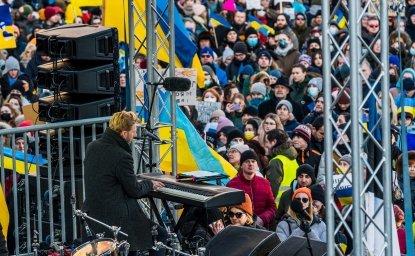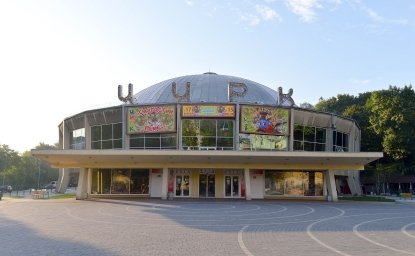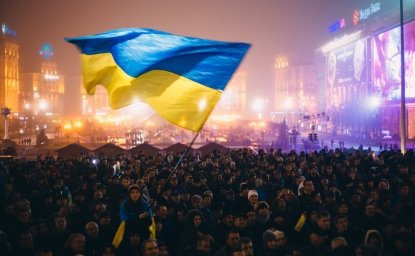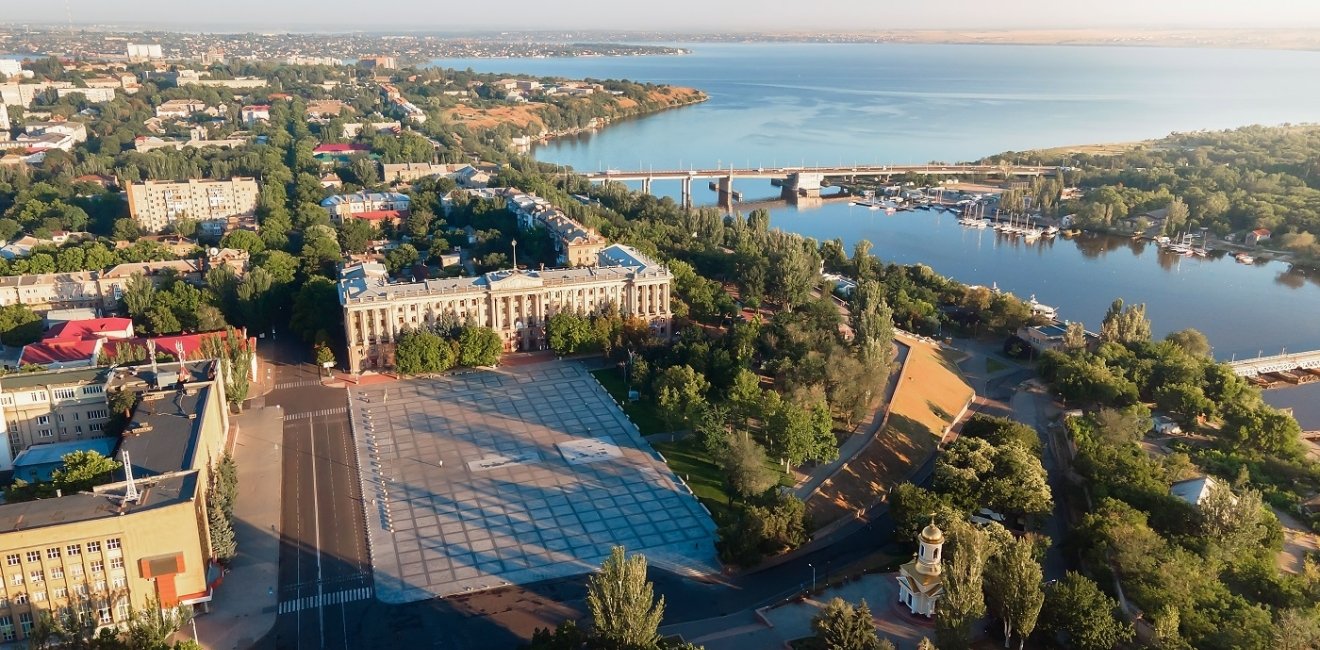
A blog of the Kennan Institute
The arts have stood at the center of the current war in Ukraine from the beginning. Driven by megalomanic conceptions of their own culture, Russian forces have targeted cultural sites in their effort to deny the existence of an independent Ukrainian culture. Russian rockets and bombs dropped by kamikaze drones have rained down on schools, libraries, museums, and theaters across Ukraine. Ukrainians, in response, have turned to their own cultural heritage to support their troops and to proclaim their own distinct identity in the face of the brutal Russian onslaught.
Mykolaiv has been in Russian crosshairs from the very beginning of the war. Just 80 miles from Ukraine’s largest port of Odesa, the city, founded in 1789 by Prince Potemkin as Nikolaev, has been a major Black Sea shipbuilding center since its beginnings. By 2020, it housed three major shipyards. Mykolaiv stands in the middle of Russia’s southern invasion strategy to seize a belt of territory extending through Odesa to Moldova. Just a couple of dozen miles from the front for much of the past year, those who have remained in the city have endured nightly shelling, which has obliterated much of the city’s residential, industrial, and cultural infrastructure.
Prior to the Russian invasion, the city was home to nearly half a million residents and several museums, a philharmonic orchestra, a puppet theater, and important Ukrainian and Russian drama theaters. The Russian drama theater, now renamed the Mykolaiv Academic Art Drama Theater, has a distinguished artistic history enhanced by its location in a lovely neo-classical building dating from the 1880s. In September, Russian rockets destroyed it, as they have more than 500 Ukrainian cultural institutions.
Mykolaiv’s remaining residents would be forgiven if, under such circumstances, they cast the arts aside. But, as Ukrainians have appreciated from the beginning, sustaining the arts and a distinctive Ukrainian culture is at the center of their battle for survival. A “theater of war” has emerged across Ukraine, with producers, directors, and actors mounting new works about the invasion in basements, metro stations, and bomb shelters. The launching of the Mykolaiv Drama Theater’s 100th season this fall represents a remarkable example of Ukrainian theater’s endurance and artists’ heroism.
In August, in the face of constant bombardment, the theater organized its first film festival since the war began. As artistic director Artem Svistun explained, it is critical to keep culture alive. An audience of 35 gathered in the theater’s bomb shelter for the film screenings. In September, after the bombing, the theater began to present small theatrical productions with help from Georgian, Bulgarian, and Lithuanian theater partners and local authorities. Any profits go to support Ukraine’s military.
For the season’s opening productions, theater director Artem Svistun chose a concert program, “Ukraine will win!” as well as previously mounted productions such as Demchenko’s Killing, and an exploration of the themes in Johan Huizinga’s study of play in culture, Homo Ludens, presented by a Belarusian dissident playwright. Beleaguered residents and soldiers taking a break from the front have eagerly sought out the limited seats.
As Ukrainians have understood, the Russian attack has been about culture and identity as well as land and resources. They are looking to a future engaging both Ukraine and the world at large, and they are persisting in the present in remarkable ways.
The opinions expressed in this article are those solely of the author and do not reflect the views of the Kennan Institute.
Author

Former Wilson Center Vice President for Programs (2014-2017); Director of the Comparative Urban Studies Program/Urban Sustainability Laboratory (1992-2017); Director of the Kennan Institute for Advanced Russian Studies (1989-2012) and Director of the Program on Global Sustainability and Resilience (2012-2014)

Kennan Institute
The Kennan Institute is the premier US center for advanced research on Eurasia and the oldest and largest regional program at the Woodrow Wilson International Center for Scholars. The Kennan Institute is committed to improving American understanding of Russia, Ukraine, Central Asia, the South Caucasus, and the surrounding region though research and exchange. Read more

Explore More in Focus Ukraine
Browse Focus Ukraine
The Arts of War: Ukrainian Artists Confront Russia

A Circus Brings Joy to Lviv’s Children

How Divided Are United Ukrainians?

